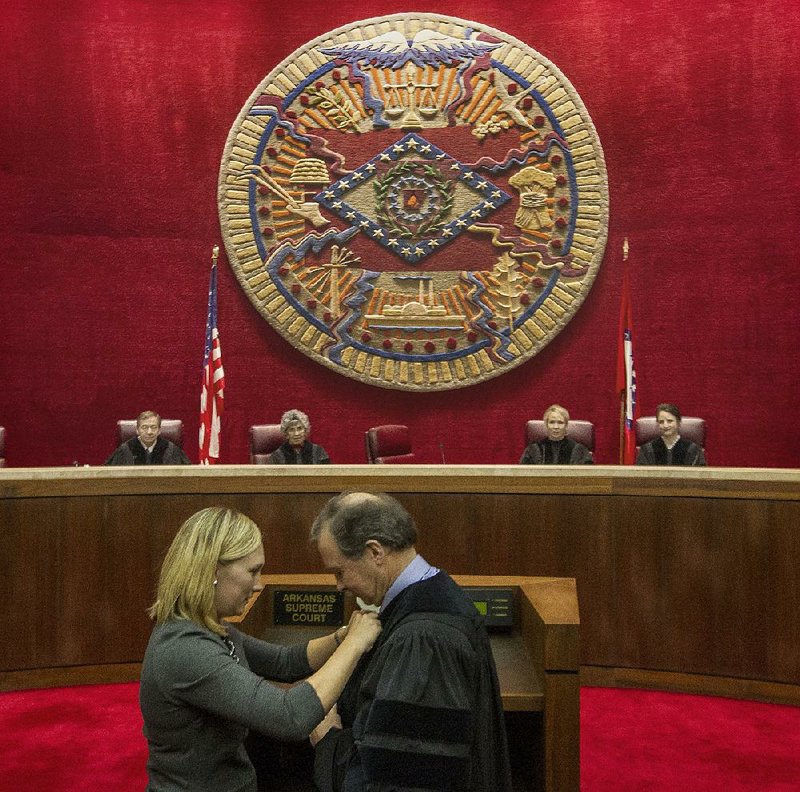Arkansans have no right to file a lawsuit against their state government, even when the Legislature gives them permission to, the Arkansas Supreme Court ruled in a split decision Thursday that overturned two decades of case law.
The precedent-setting case, Board of Trustees of the University of Arkansas v. Matthew Andrews, involved a bookstore manager at a Mena community college who had sued his employers — a state agency — over violations of the state’s minimum wage law.
The University of Arkansas System argued that the wage law violated the Arkansas Constitution’s language barring the state being made a defendant in court, known as sovereign immunity.
In 1996, the state’s high court ruled that the Legislature could write exemptions from sovereign immunity into law. But in the 5-2 decision Thursday, the court overturned its own precedent and dismissed Andrews’ suit.
The majority opinion was written by Chief Justice Dan Kemp.
[DOCUMENT: Read the majority opinion]
A dissent penned by Justice Karen Baker and joined by Justice Josephine Hart said the decision would have an effect on a variety of laws, from whistleblower protections to Freedom of Information Act requests.
In a short statement, Attorney General Leslie Rutledge said she agreed with the decision, adding that the state Constitution is “clear and must be followed.”
Attorneys who represent clients against the state, however, said the decision would have harsh repercussions.
"The majority of the Supreme Court made a radical departure from existing Arkansas law," said Chris Burks, an attorney with the Sanford Law Firm. In addition to representing Andrews, the law firm is involved with a pair of minimum wage cases brought by employees of the Department of Human Services and the Division of Youth Services.
The court's ruling effectively makes those cases moot, Burks said.
Instead of taking action against the state in court, plaintiffs may now only take their case to the State Claims Commission, an administrative body whose decisions are reviewed and approved by lawmakers.
Read Friday's Arkansas Democrat-Gazette for full details.

